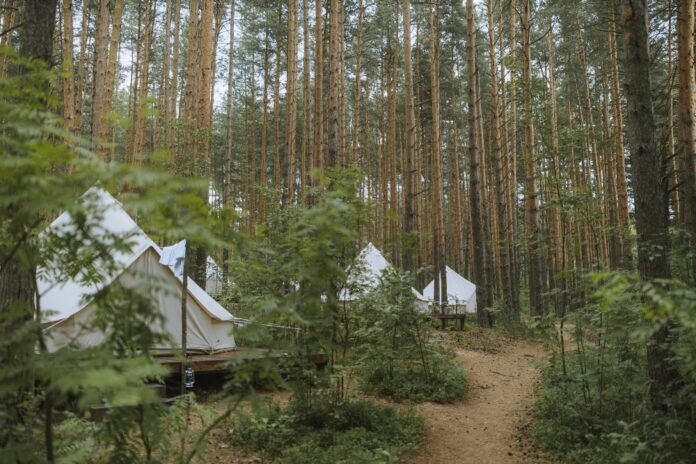The image source is Pexels.
Camping can be one of the most relaxing and refreshing activities out there. There is just something about being out in the wild that makes you feel better about everything, even if you don’t do a whole lot while you are there. Of course, some people spend way too much money on their camping trips, which somewhat defeats the point. With that in mind, let’s talk about how you can camp on a small budget with minimal hassle.
1. Find An Affordable Campsite
Table of Contents
There are lots of places that will allow you to set up camp on a short-term basis, but most of them will charge some sort of fee. This fee varies a lot depending on the location, but obviously, well-known parts of the wilderness are going to be more expensive. For instance, the fees at Yellowstone will probably be a lot higher than those at your local campground. So, start by shopping around and finding a place that you can afford. When you do an internet search, try to be more specific than just “camping sites near me.” For instance, if you want to do some fishing or just spend some time outdoors by a lake, you might search “lake camping near me.”
2. Consider investing in an RV
This is only a good option if you like to camp on a regular basis. In the long run, it is actually cheaper to get a small recreational vehicle (i.e., a camper) for your camping trips. The money that you will save on other goods and services will allow the RV to pay for itself over time.
3. Bring Affordable Food And Cook With Fire
Of course, you need to bring food with you, and this is another opportunity to save money. Instead of hitting a restaurant on the way there (or on the way back), or buying food somewhere within a park (which will likely be overpriced), just pack a large number of cheap food items before you go.
Speaking of food, you should also cook it with fire whenever possible. Some campsites won’t allow you to make a fire, but most will. Not only does it add to the uniqueness of the experience, but it also allows you to save money (and backpack weight). If you don’t use fire, you will probably have to use a gas-powered stove or something like that.
4. Second Hand Camping Gear
Buying brand-new camping gear can be pretty expensive. Even if you go with the cheaper brands, those little items can add up quickly. First of all, sit down and make a list of the essential things that you need for a camping trip. Then go over that list and see if there is anything that isn’t truly necessary.
Once you’ve busted it down to the bare essentials, look around on marketplace sites for second hand camping gear. Even if it has some wear and tear, you can often repair the damage. Sometimes, you can just ignore the damage. For instance, let’s say you find a hatchet that is cheap but rusty. Rust can be cleaned off, as long as it doesn’t go too deep and ruin the metal. Thus, surface rust can be ignored when buying such an item.
5. Borrowing And Repurposing
While we’re talking about camping gear, we should also talk about borrowing and repurposing. A lot of people buy fancy camping equipment, only to throw it in a closet after a few uses. If you have friends who have done that, you can probably borrow some of that equipment. Either way, it is worth asking around.
You can also take common items from your home and use them for camping purposes. For instance, you don’t need to buy special cookware for cooking over an open fire. Of course, the cooking process will be a little bit different. If you hang the pot or pan a foot or two above the fire, you can avoid getting an excessive amount of soot on the bottom. Thus, you can use your ordinary pots and pans.
Conclusion
These are just a few simple tips that can help you save a significant amount of money on camping expenses. In closing, you can budget for your camping trip by thinking about all the biggest expenses, which would be:
- Travel
- Park Fees
- Camping Gear
- Food/Other provisions
All of these expenses can be trimmed with a little creativity, so we wish you the best of luck.


